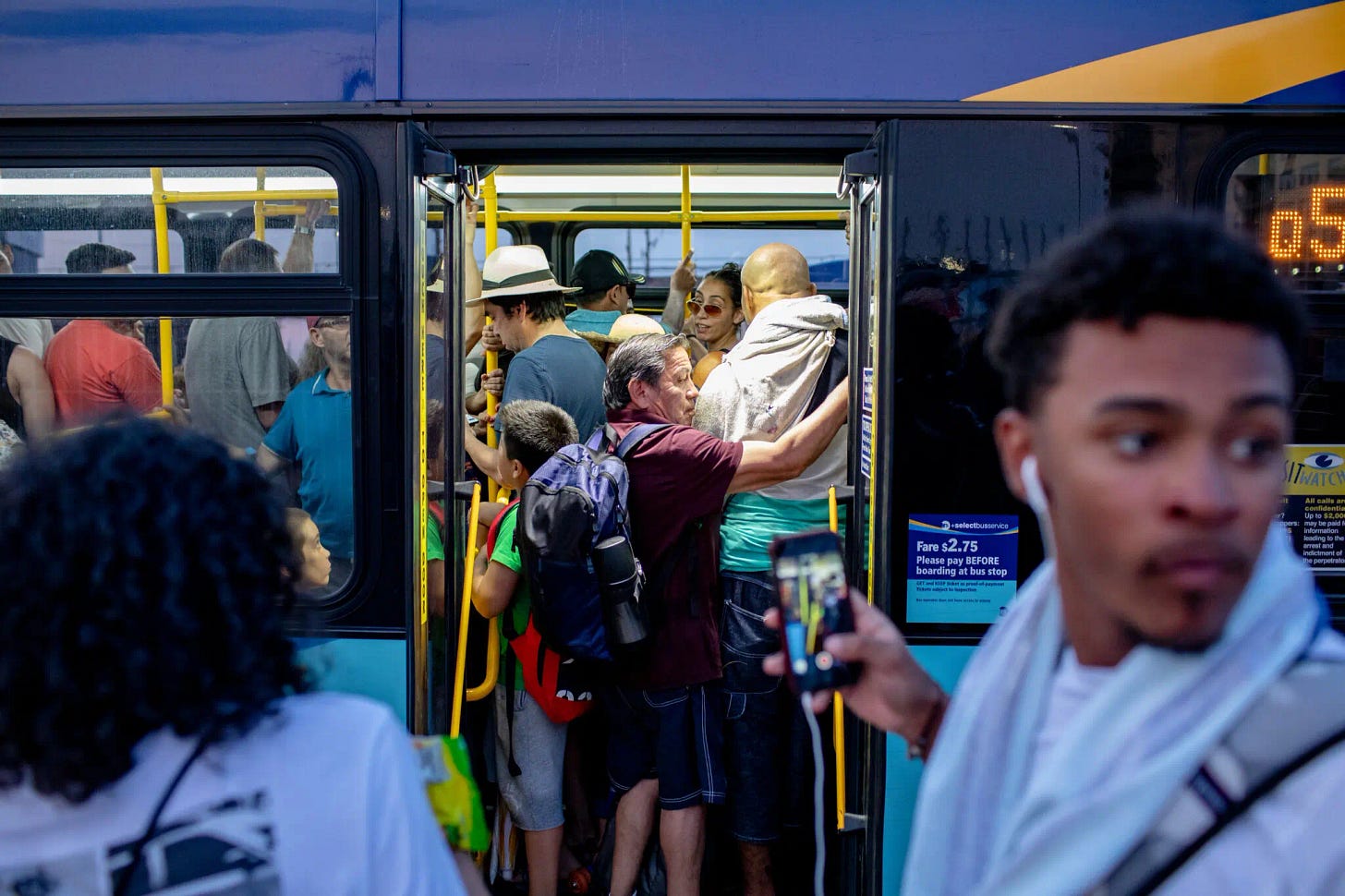Ezra Klein on NYC Congestion Pricing
We are in gridlock on the cure to gridlock.
Ezra Klein does a masterful analysis of the NYC congestion pricing morass, which I won’t summarize completely, here. But here is the chewy chocolatey center:
It’s hard to think of a liberal goal congestion pricing doesn’t serve: The people who drive into Manhattan are richer, relatively speaking, so it’s a progressive tax; the people who take mass transit are poorer, so it funds public infrastructure for those who need it most; cars belch out more pollution per passenger than trains and buses, so it’s good for both the environment and public health. One study found that Stockholm’s congestion pricing plan cut ambient air pollution by 5 to 15 percent and sharply reduced severe asthma attacks in children.
But New Yorkers are still waiting. Congestion pricing isn’t technically complicated. It doesn’t require major new infrastructure. It’s largely a question of hanging sensors on poles. But I’m told that the likely launch date for New York’s congestion pricing program — which, again, passed in 2019 — is now sometime in 2024.
“We’ve been in negotiations with the federal government that has a say on the next step,” Gov. Kathy Hochul said during Tuesday night’s Democratic primary debate. “And they have now put some other — let’s call them hurdles — in the way that we have to overcome. So this is not going to happen over the next year under any circumstances.”
So here’s the question: Why has this taken so long?
In 2021, the Biden administration struck a deal with New York. Rather than a full environmental impact statement — which now takes federal agencies, on average, 4.5 years to complete — New York could conduct an “environmental assessment,” which is a bit more forgiving. Still, the process called for 16 months of public meetings and traffic analyses. The Metropolitan Transportation Authority submitted a draft review in February. The Federal Highway Administration replied with more than 400 technical questions and comments.
The strange thing is that the Biden administration and the Federal Highway Administration deeply believe in the need for congestion pricing, not just in NYC, but across the country. And every year delayed defers direct benefits to those most harmed by congestion in the core of major cities: the poorest residents.
And what does this say about our ability to push forward with other climate goals?
The Federal Highway Administration has made itself into the ombudsman of congestion pricing, not an accelerator of a project that New York’s voters are perfectly equipped to judge. Elections, not technical reviews, are typically the best avenue for accountability.
And I promise you: I have not cherry-picked the most contentious program, or the worst process. Quite the opposite. Congestion pricing is a useful case study precisely because it’s a straightforward policy, with the explicit, even fervent, support of all the major decision makers. It raises revenue, rather than costing money. You don’t need to build new tunnels or dam rivers or run a train track through a city. As far as major climate policy goes, this one is easy. And yet, it’s proved to be so, so hard.

